A day at the Council of Europe with Swiss delegates
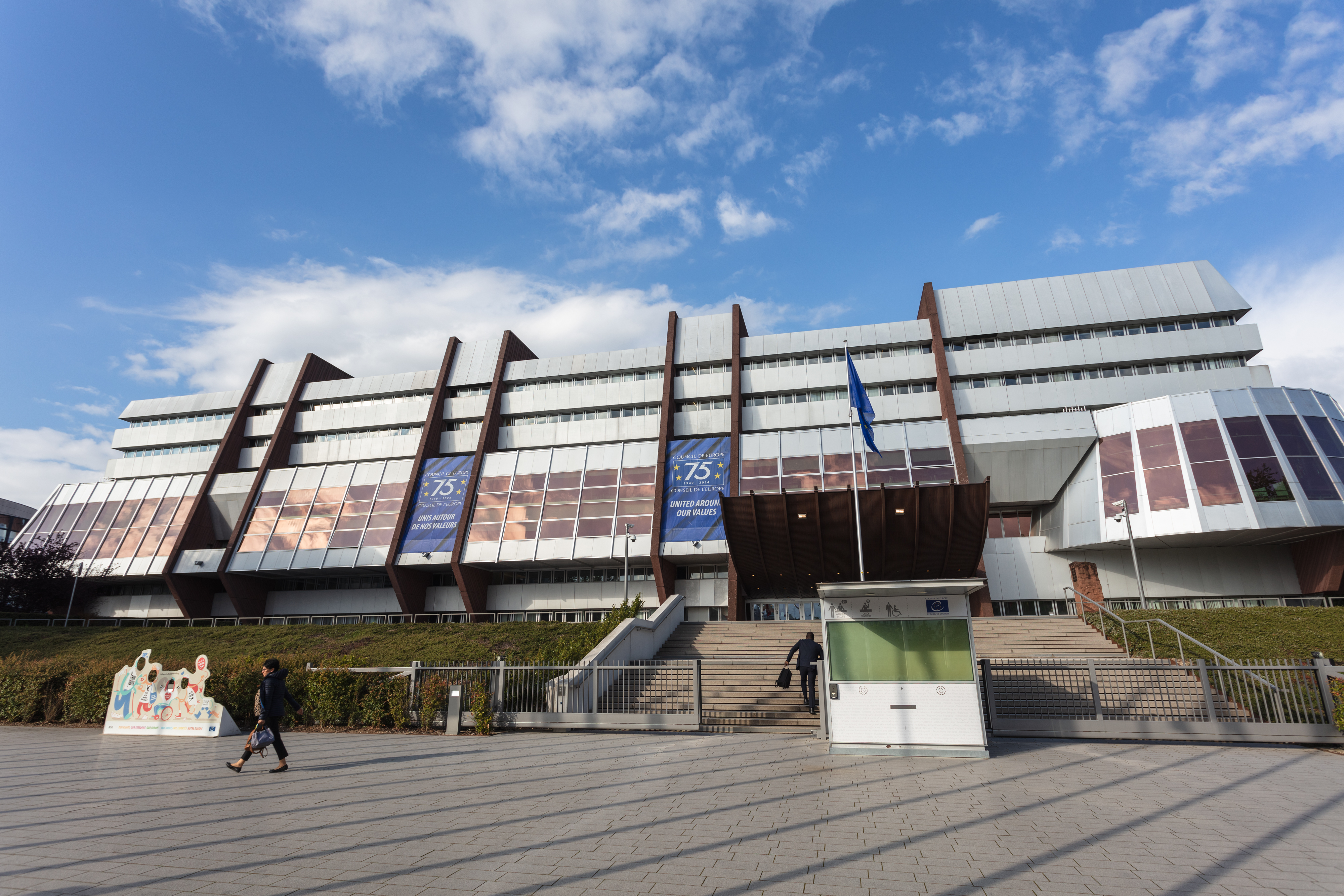
The Council of Europe rarely makes headlines in Switzerland, but a recent ruling of its supranational court against the Swiss government for failing to act on climate change is making waves. What is the Council of Europe, and what is Switzerland’s role in it?
It’s early morning at Basel railway station. Sibel Arslan walks up to the platform holding a cup of coffee, her second of the day. She did not get much sleep the previous night. Her last appointment was at 11pm. “Is it ok if we travel economy class?” the left-wing Green Party parliamentarian asks.
Arslan is on her way to Strasbourg, where the Swiss foreign policy expert pursues her other political career, namely as a member of the Parliamentary Assembly of the Council of Europe. On the train, she skims the agenda of the day’s session after having already studied it earlier.
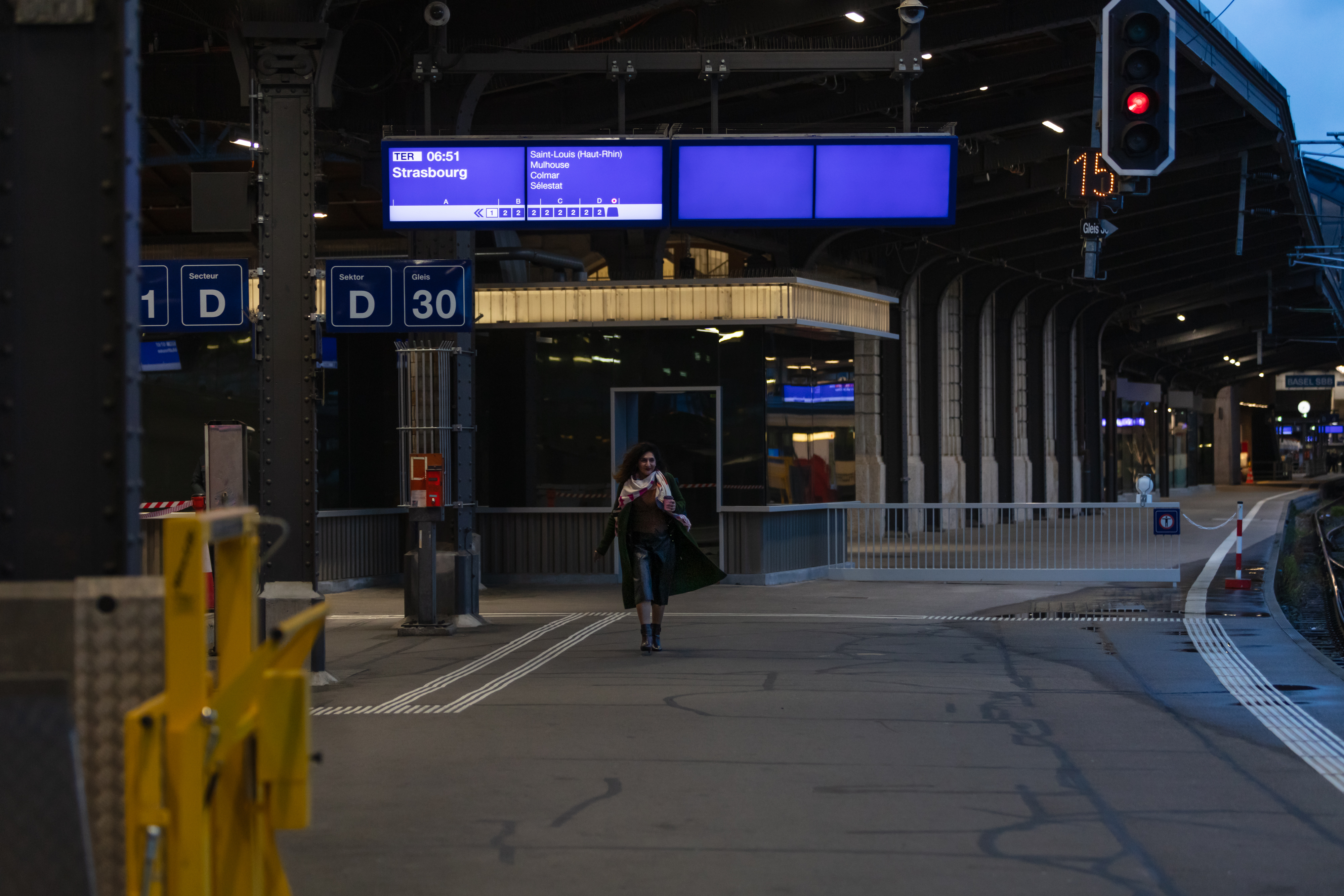
It’s going to be a busy week for the Swiss delegates in Strasbourg. The special session of the Swiss parliament in Bern overlaps with the Council of Europe’s spring session. At the same time, the Swiss representatives at the Council are campaigning on behalf of the former Swiss interior minister, Alain Berset, who is running for the post of Secretary General of the European body.
The Council of Europe is the “guardian of human rights, democracy and the rule of law”. It was founded in 1949 after the Second World War with the aim of creating lasting peace in Europe. It unites all European nations that claim to be democratic, which is a broad spectrum and allows countries like Azerbaijan to be a member. However, Azerbaijan’s delegation was excluded from the Parliamentary Assembly of the Council of Europe for at least one year at the beginning of 2024. Belarus, the Vatican City State and Russia – following its exclusion in 2022 – are the only European countries that are not members.
The 46 member states have also signed the European Convention on Human Rights, whose implementation is monitored by the European Court of Human Rights (ECHR), which is a supranatural court. Decisions of the ECHR are implemented by the member states and their courts. Residents of the member states can also bring their human rights issues before the ECHR.
The governments of the member states, which are usually represented by their ambassadors, meet in the Committee of Ministers of the Council of Europe. All member states have parliamentarians who represent them in the Parliamentary Assembly. The election observation missions are an important supervisory element.
In recent weeks people in Switzerland have been hearing a lot about the Council. In April the European Court of Human Rights (ECHR), a surpranational court set up by the Council of Europe, ruled Switzerland was not doing enough to tackle climate change. On the day of the ruling, the right-wing Swiss People’s Party called on Switzerland to leave the Council of Europe.

More
Landmark ruling: Switzerland’s climate policy violates human rights
As a member of the Council of Europe, Switzerland can get involved in pan-European politics even though it’s not a member of the European Union. It joined the Council in 1963 but became a United Nations member state only in 2002.
As the train weaves its way through the landscape, Arslan explains how she ended up in Strasbourg. “The Council of Europe was one of the reasons why I wanted to join [the Swiss] parliament,” she says. During her law studies, she was fascinated by how the Council promotes human rights and the rule of law.

When she finally joined the Council’s Parliamentary Assembly, she was surprised by the intensity of the job. It is different from the pace in Switzerland. “I’m dashing from one meeting to the next,” she says. The languages are also a challenge. During her first session, she spoke six different languages. It also takes more time to write speeches in English. Members of the Council who spoke to SWI swissinfo.ch told similar tales of being overwhelmed by the workload when they first arrived in Strasbourg.
Praise for the Court’s ruling against Switzerland
The Council of Europe often gets confused with the European Parliament of the European Union. The parliamentarians in Strasbourg think this is the Council’s own fault. The European flag with its 12 stars flies in front of the Council of Europe. The European Parliament is just next door – and, due to ongoing renovation work, the Council of Europe Parliamentary Assembly is meeting in the hall of the EU Parliament.
This morning, the debate focuses on environmental issues and ocean protection. Arslan is a speaker in the plenary. Many of those who take the floor refer to the ECHR’s conviction against Switzerland and how it is not doing enough to deal with climate change. The ruling has been met with a lot of opposition in Switzerland, where only left-leaning and green parties have welcomed it.
The verdict was perceived differently in Strasbourg. In the plenary session, Austrian politician Andrea Eder-Gitschthaler of the right-wing Austrian People’s Party hailed the “historic success of Swiss climate activists”. As a senior citizens’ representative, she is grateful to the Swiss Climate Seniors’ Association, which brought the complaint to the Court.
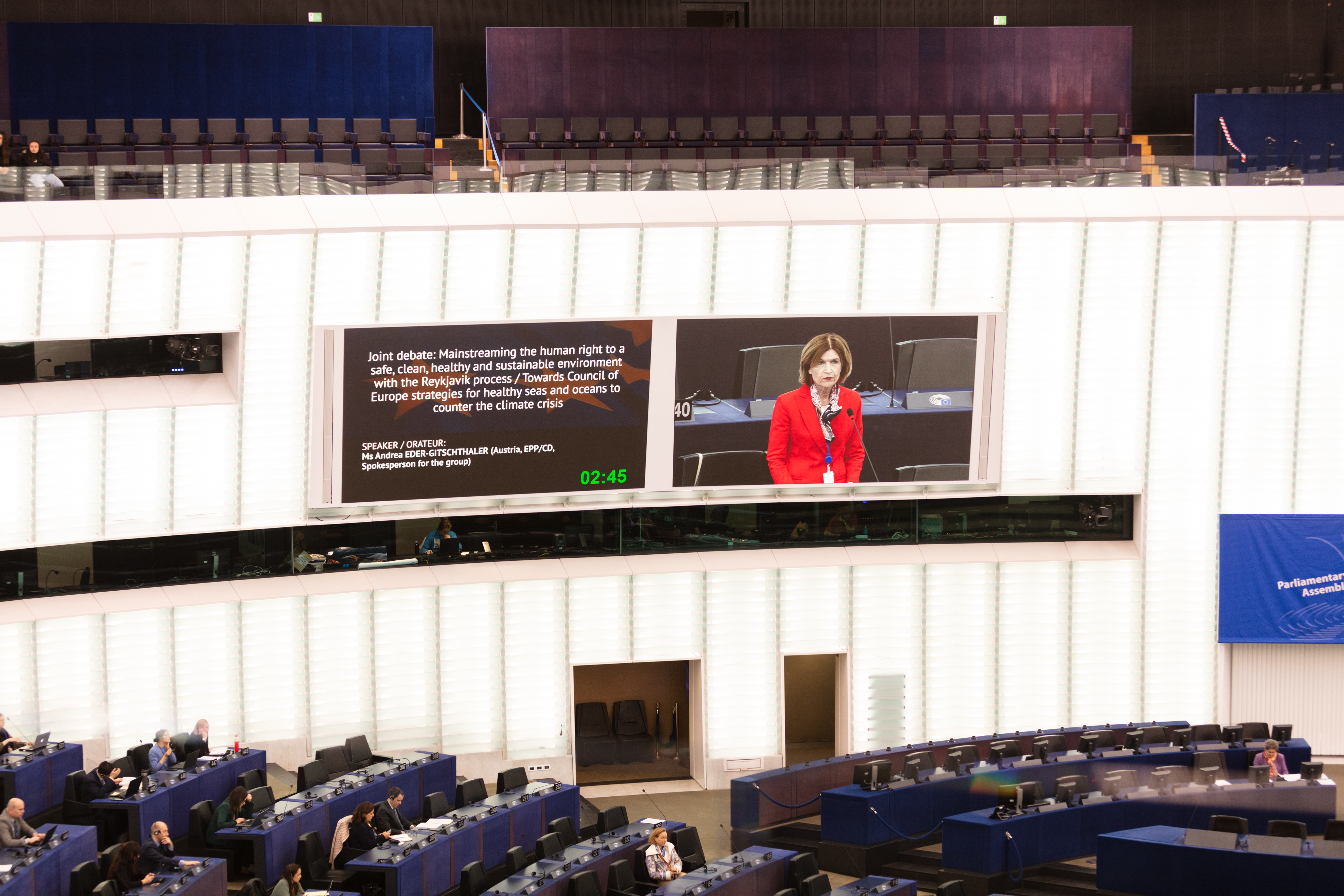
During the plenary session, declarations on protecting the oceans and the environment achieve clear majorities during voting. The Parliamentary Assembly does not formulate laws but gives recommendations on how to make the texts clearer. Their recommendations are not binding and their impact can only be seen on a case-by-case basis.
An ‘underestimated institution’
Damien Cottier, a Swiss parliamentarian with the centre-right Radical-Liberal Party, thinks that in the verdict against Switzerland, the ECHR interpreted Article 8 of the European Convention on Human Rights – which protects the right to respect for private life and family life – “too far into the political sphere”. But he believes the process is useful. “All landmark decisions of the ECHR have sparked discussions,” he says.
Switzerland must now submit evidence that it is doing enough to protect the climate. In the meantime the citizens of all 46 member states have the right to refer to the ruling if they believe their country is violating any rights referred to in it.
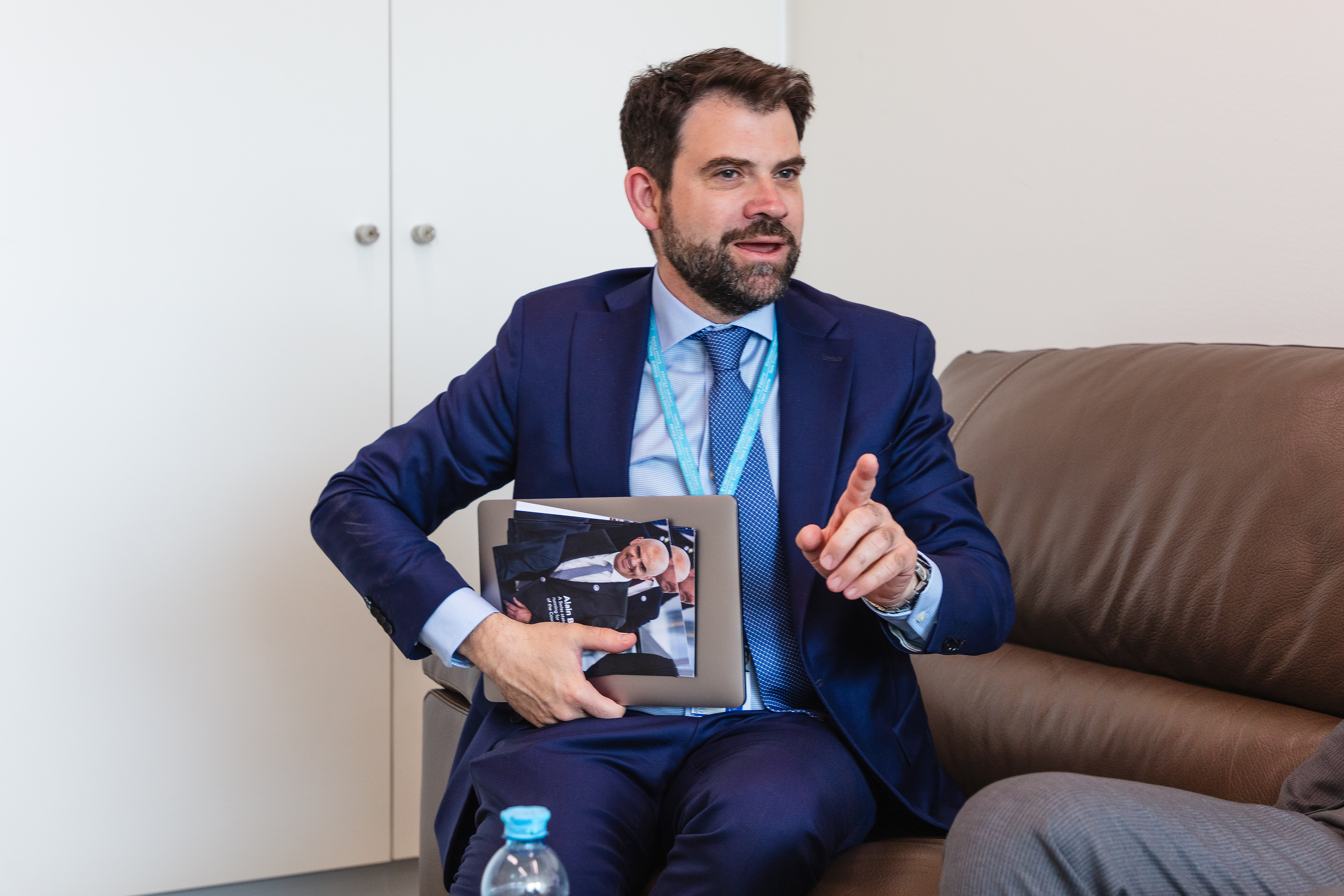
These days, Cottier roams the corridors of the Council handing out flyers promoting Berset’s candidacy. Among the Swiss parliamentarians we meet, he is the most passionate about the Council. “This institution is underestimated – we need more of the Council of Europe,” he says, especially to prevent tensions, such as those between Serbia and Kosovo, from developing into a bigger conflict.
The exchange in the Assembly has a nuance that’s absent in other international organisations. When someone speaks at the UN, for example, they speak on behalf of their country. The same is true when Claude Wild, the Swiss ambassador to the Council, makes a statement.
“Whenever I say something, it is not Switzerland speaking, but a parliamentarian,” Cottier explains. This gives the members of the Assembly the chance to speak out on issues that would be too delicate for a government to communicate.
One example is the resolution recommending the creation of a Special Tribunal for the Crime of Aggression against Ukraine, which members of the Council adopted unanimously. It is hard to imagine that the Swiss government would have ever developed such an initiative.
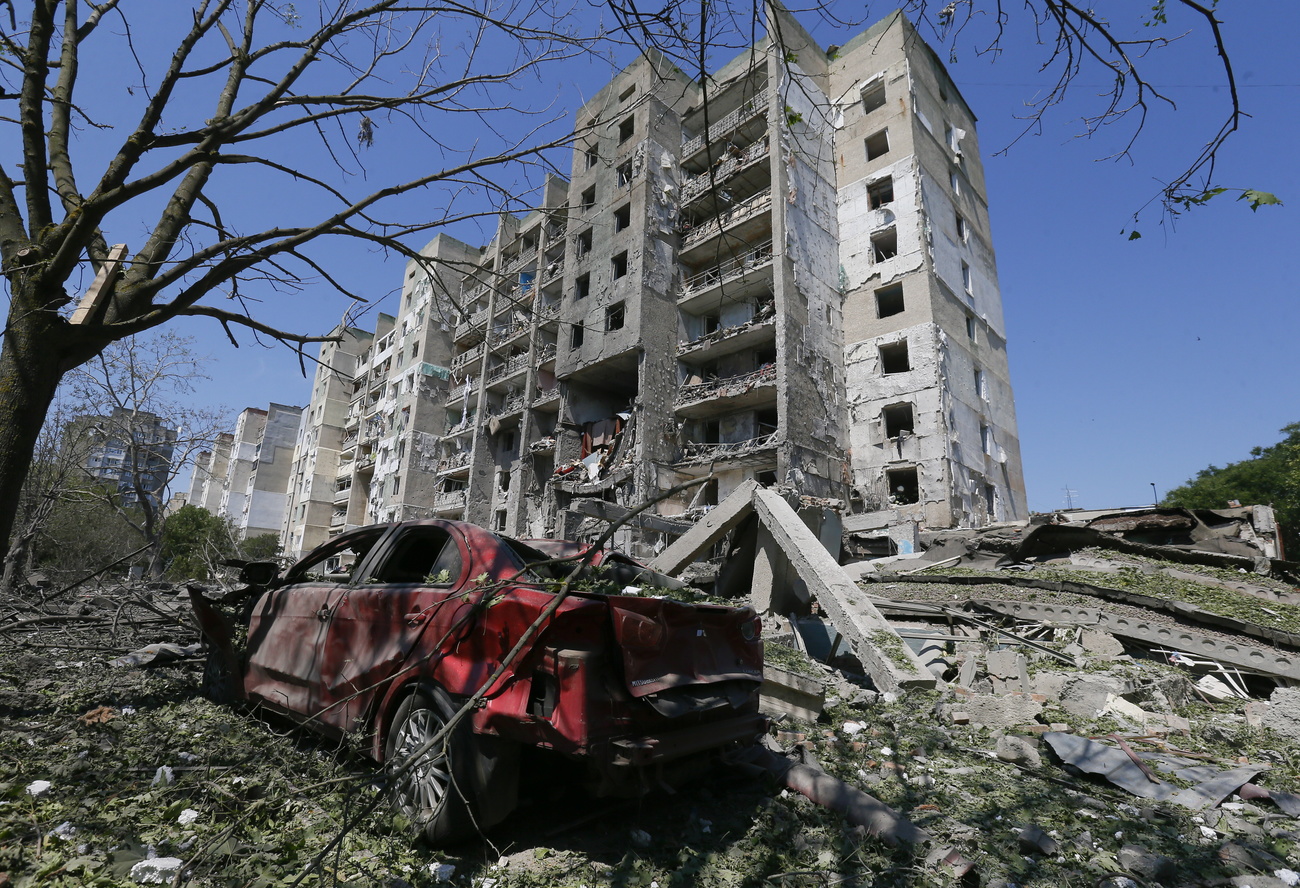
More
Recovery is only possible with a ‘stronger and more resilient democracy’
If Russia had become a democracy, the war of aggression against Ukraine wouldn’t be happening, according to Cottier. “Two democracies do not go to war with each other – protecting democracy is our most important task,” he says. Of course, there is also a lot of “blah blah and paperwork”, he adds, but that’s the norm for international organisations. “Multilateral organisations are always inefficient,” he says. “But countries talk to each other rather than wage war, and that’s essential.”

One of the favourites for the post of Secretary General, alongside Berset, is the Belgium EU commissioner Didier Reynders. He is a member of the Alliance of Liberals and Democrats for Europe (ALDE), for which Cottier acts as a treasurer. Apart from the Radical-Liberal Party, some members of the Swiss People’s Party sit with ALDE in the Assembly. There are mainly historical reasons for this.
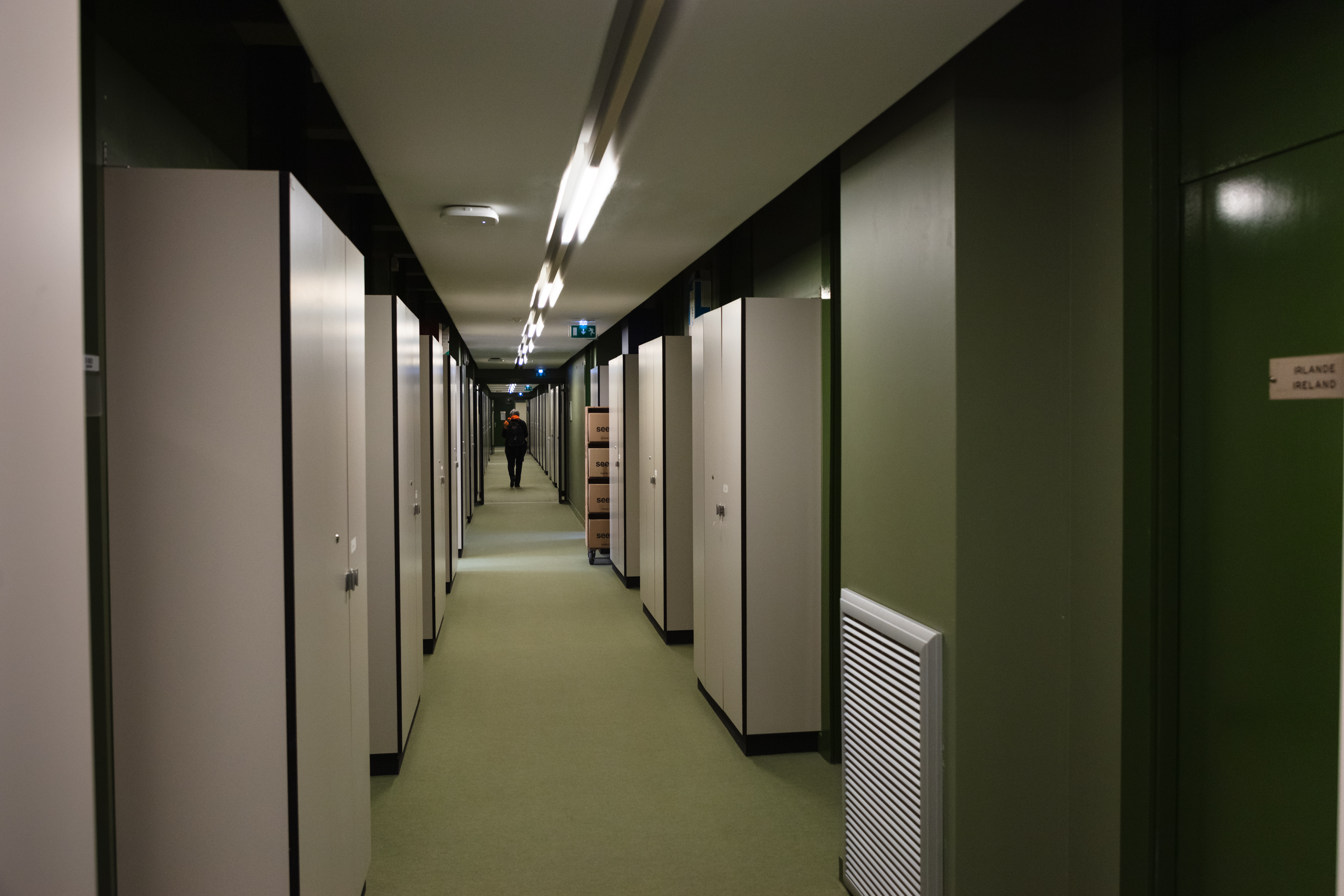
The People’s Party has major differences with some of the other conservative parties on the Council, says Alfred Heer, a People’s Party member.
Heer is not as enthusiastic about the Council as Cottier is. “I am not a cheering member of the Council,” he says. “I come from a neutral country. I mainly want to listen and maybe give advice here and there.”
While answering our questions, Heer watches the Council’s debate on the war in Gaza on the live screen. As president of the Swiss delegation to the Council of Europe, he is busy campaigning for Berset this week, including on the sidelines of a lunch with the Prince of Liechtenstein.
It is remarkable for a Swiss People’s Party parliamentarian to be campaigning for Berset, a Social Democrat and former health minister, who during the Covid-19 pandemic was branded a dictator by the right-wing party. But Heer has a simple and clear answer to this: “Berset is good. As a Swiss national, he knows how democracy works, and the alternative [for the post of Secretary General] would be the EU commissioner from Brussels.”
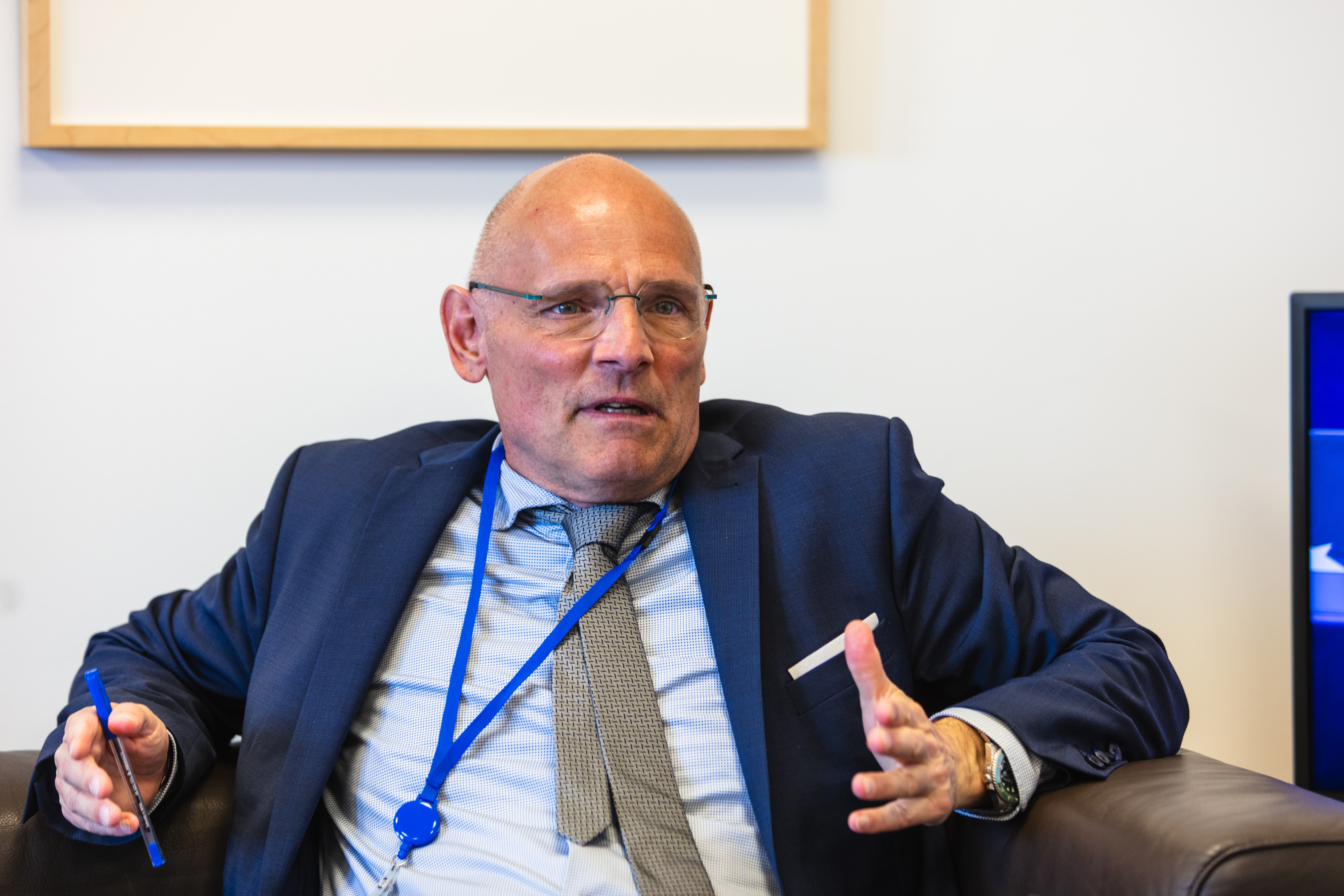
The fact that Switzerland can share its knowledge of democracy with other countries, such as the former Soviet states, is one of the main reasons it makes sense for the Alpine nation to be on the Council. “Human rights are very advanced in Switzerland, maybe almost too advanced,” he says.
Heer considers the Council of Europe particularly important for “countries that are in direct conflict with each other, such as Armenia and Azerbaijan”. The European Convention on Human Rights does not only promote democratic reforms, but it also gives persecuted people and members of the opposition the opportunity to take legal action before the ECHR.
However, the political demands and declarations of the Council of Europe are largely ineffective, according to Heer. “As a political entity, the Council of Europe has no influence,” he says, explaining that the US and NATO are the major organising powers of the Council.
For him, the Council’s strength lies in political dialogue and election observation missions on the ground. “What the Council of Europe delivers is fine for the CHF12 million ($13 million) price tag,” he says, referring to Switzerland’s 2024 contribution to the Council.
Heer understands why the People’s Party has called for Switzerland to withdraw from the Council after the ECHR’s verdict. However, he believes that staying in is better. “As long as we are part of it, we can voice our criticism,” he says as he rushes off to the assembly hall.
Edited by David Eugster. Adapted from German by Billi Bierling/Geraldine Wong Sak Hoi
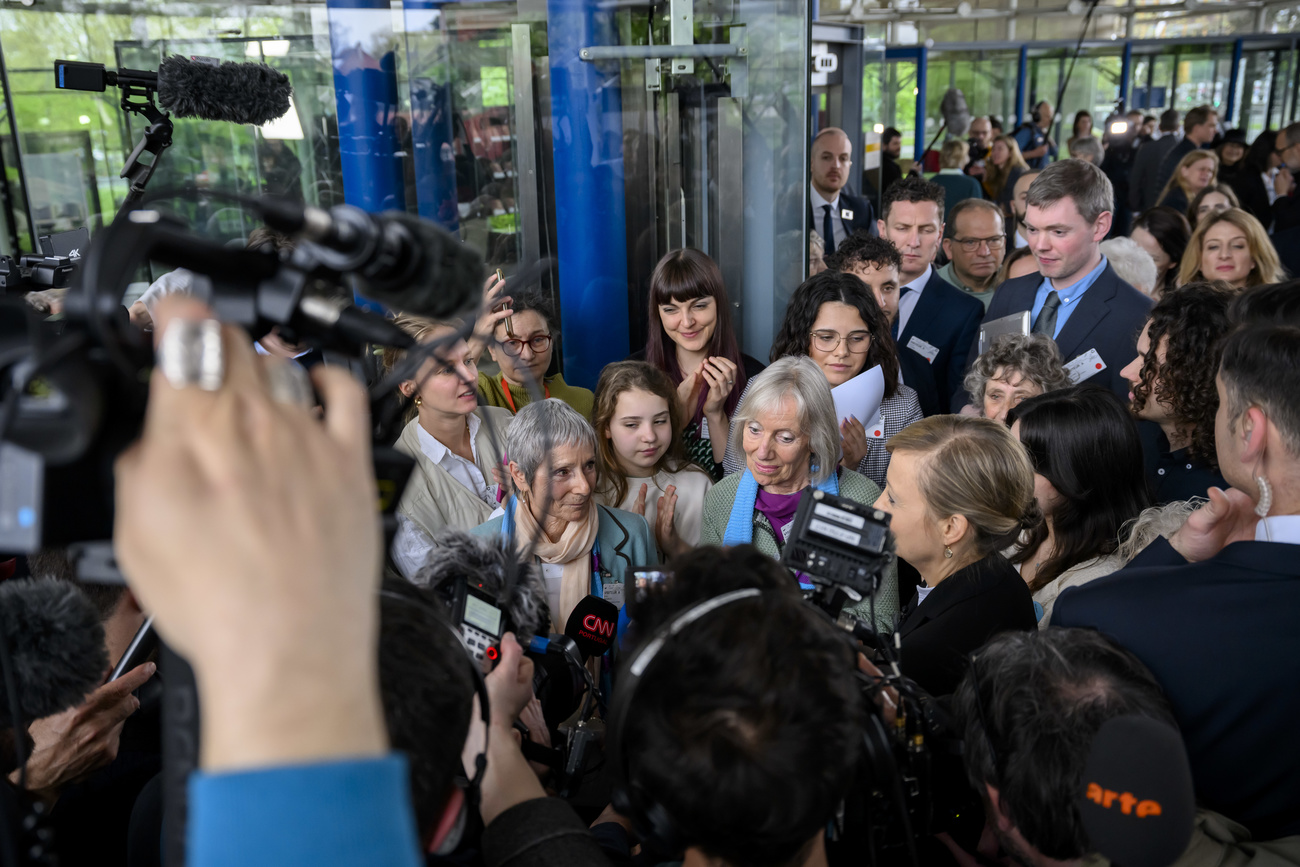
More
‘Absurd’ European climate ruling could harm democracy, say Swiss press

In compliance with the JTI standards
More: SWI swissinfo.ch certified by the Journalism Trust Initiative

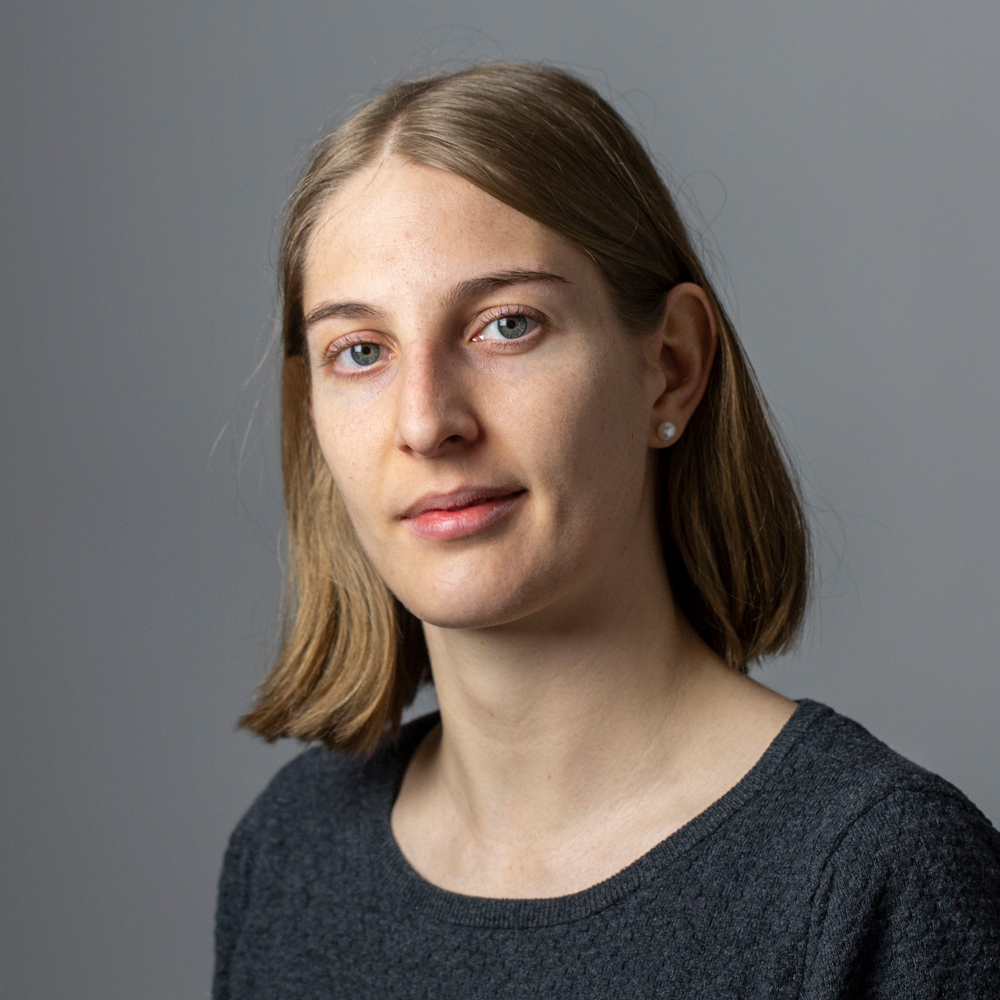







You can find an overview of ongoing debates with our journalists here . Please join us!
If you want to start a conversation about a topic raised in this article or want to report factual errors, email us at english@swissinfo.ch.